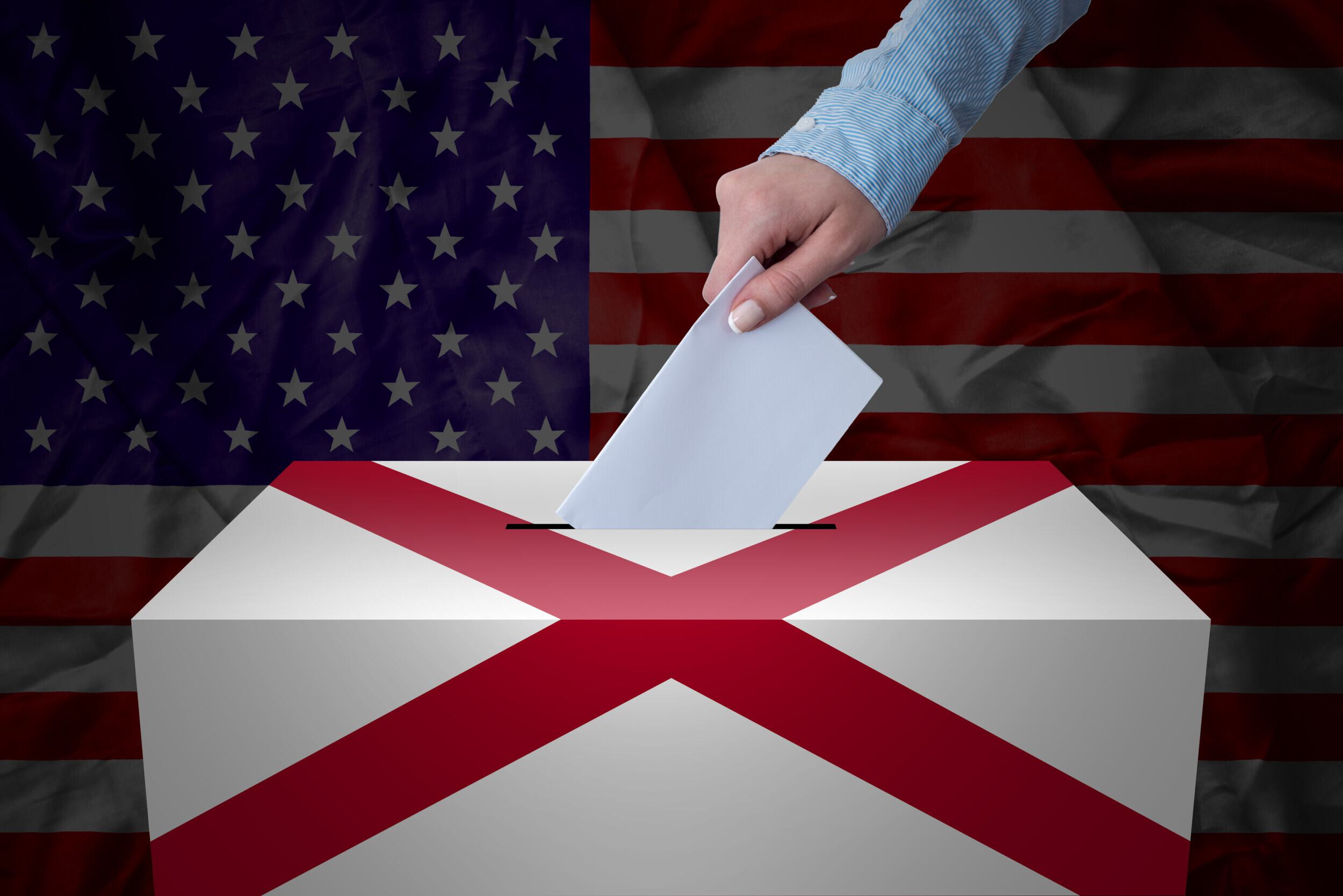The November 8 midterm election is less than a week away, which includes a U.S Senate seat up for grabs, 10 constitutional amendments and the Libertarian party on the ballot for the first time in decades.
The candidates on every ballot will include races for Governor, Secretary of State, Attorney General, and U.S Senator, among other statewide contests.
Gov. Kay Ivey stands opposed by Democratic candidate Yolanda Rochelle Flowers and Libertarian James "Jimmy" Blake.
For Lieutenant Gov., incumbent Republican Will Ainsworth faces Libertarian candidate Ruth Page-Nelson.
Libertarian candidate John Sophocles, Republican candidate Katie Britt and Democratic candidate Will Boyd will be running for Richard Shelby's soon-to-be vacant Senate seat.
Republican Greg Cook faces Democrat Anita L. Kelly in the Associate Justice of the Alabama Supreme Court race.
Republican Wes Allen faces Democratic candidate Pamela L. Laffitte and Libertarian candidate Jason "Matt" Shelby in the Secretary of State race.
The State Auditor race will see State Rep. Andrew Sorrell (R-Muscle Shoals) face off against Libertarian candidate Leigh Lachine.
The State Treasurer's race will see incumbent Republican Young Boozer face off against Libertarian Candidate Scott Hammond.
Other offices will only appear on ballots in certain precincts, which will apply to individual districts.
Sample ballots for each county can be found below.
The constitutional amendments listed below will be found on all ballots statewide:
Amendment 1 would create Aniah's Law, which will give judges the ability to stiffen bail for those accused of capital murder, murder, kidnapping in the first degree, rape in the first degree, sodomy in the first degree, sexual torture, domestic violence in the first degree, human trafficking in the first degree, burglary in the first degree, arson in the first degree, robbery in the first degree, terrorism when the specified offense is a Class A felony other than murder, and aggravated child abuse of a child under the age of six. The law is named after Aniah Blanchard, who was kidnapped and murdered in October 2019. The suspect was out on bond in connection to another kidnapping and murder earlier that year.
Amendment 2 would allow the state, a county or a municipality to create programs to expand broadband in underserved areas. Federal funds or other sources of funds would be designated to install broadband infrastructure for public or private entities.
Amendment 3 would require the governor to notify the attorney general and the victim's family before granting a commutation or reprieve in the case of someone sentenced to death. If a person on death row was given a lighter sentence, such as life in prison or a stay of execution, the governor would be required to make a reasonable effort to contact the family ahead of time.
Amendment 4 would require any legislation passed concerning a general election to be implemented at least six months before the next general election. The purpose is to ensure the supermajority cannot enact a bill in their favor just before an election. Any bill passed within six months of a general election would not apply until the next calendar year.
Amendment 5 would remove outdated language concerning the adoption process. The words "orphans' business" would be removed from the jurisdiction of probate courts, but the probate courts would still be responsible for adoptions and guardianships.
Amendment 6 would allow municipalities that collect a special property tax to use those dollars to "pay-as-you-go" for projects. The money would go directly to those capital improvements instead of requiring the municipalities to use bonds or other forms of debt.
Amendment 7 concerns economic development. It would revise Amendment 772, which requires counties and municipalities to adopt a resolution to determine whether funds would serve a public purpose. The Alabama Fair Ballot Commission wrote, "Currently, the Alabama Constitution provides that some counties and cities/towns may use public funds to sell public property, lend their credit, or become indebted for economic development purposes.
"Amendment 7 will give all counties and cities/towns those same powers."
Amendment 772 also requires notice to go in the area's largest newspaper. Amendment 7 would allow the counties or municipalities to publish those notices in any local newspaper, not just the largest.Amendment 8 pertains to private sewer systems in Shelby County. It would support the state Public Service Commission (PSC) to regulate privately owned sewer systems and plants in Shelby County. The PSC would regulate rates and charges. The amendment must be on the statewide ballot to be approved, and it must be supported by the majority of voters in Shelby County.
Amendment 9 is similar to Amendment 8 but pertains to the town of Lake View. It would support the state Public Service Commission (PSC) to regulate certain privately owned sewer systems and plants in Lake View, which is in both Jefferson and Tuscaloosa counties. For Lake View, the amendment would begin on January 1, 2023, and would end on December 21, 2027.
Amendment 10 would allow for the organization of amendments to the Constitution of Alabama. The amendment must be passed along with a question that will appear on the ballot. If both measures on the ballot pass, new amendments will be organized into the state constitution. Proper articles and sections would be arranged in a logical manner. The question on recompiling the constitution also seeks to remove racist language, delete duplicated and repealed provisions and arrange local measures by counties.
To connect with the author of this story, or to comment, email craig.monger@1819news.com.
Don't miss out! Subscribe to our newsletter and get our top stories every weekday morning
Erica Thomas contributed to this report.










